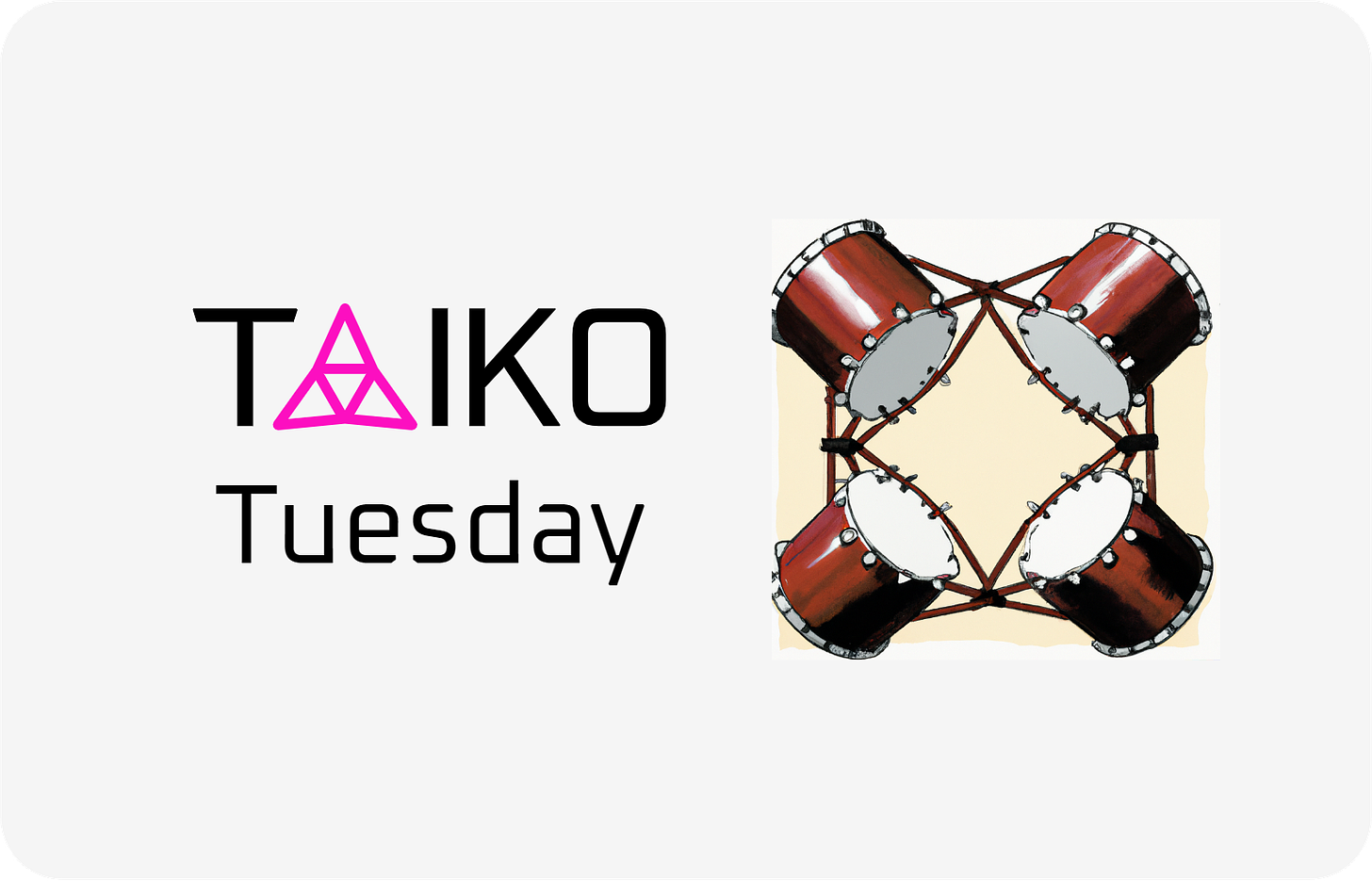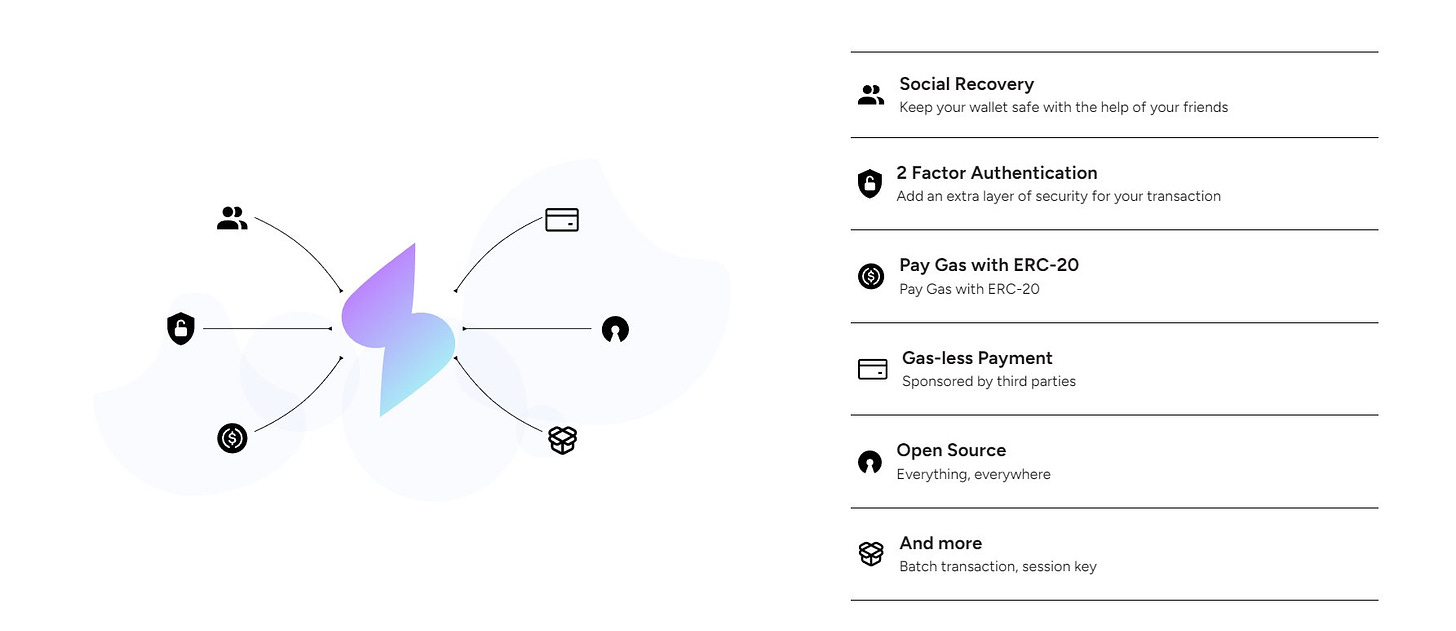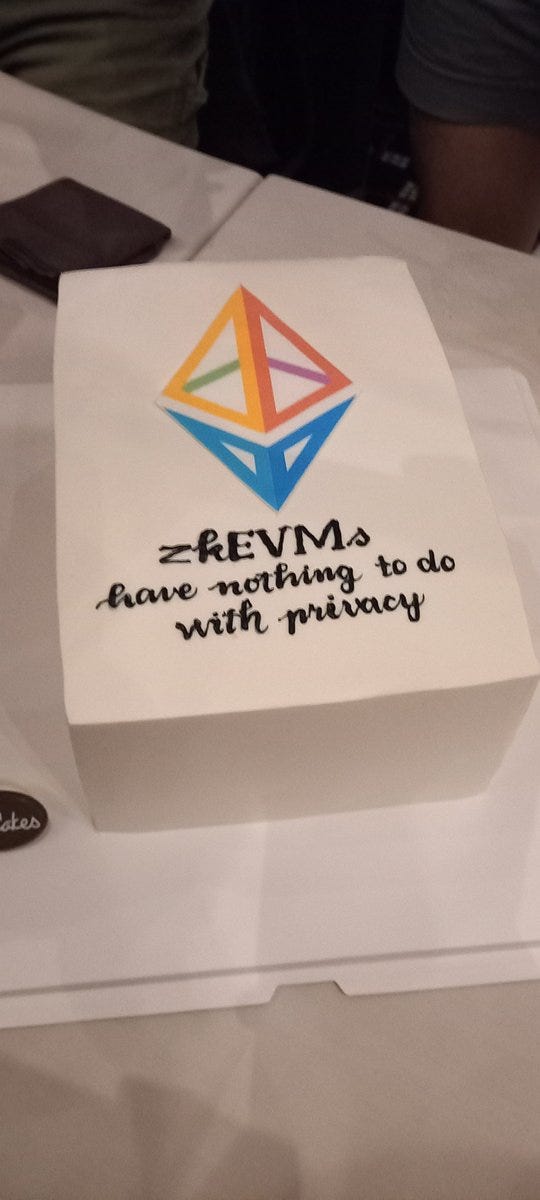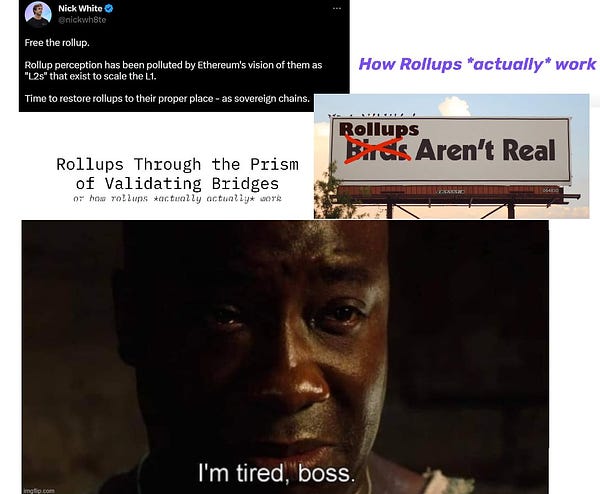Dawn of a New Economy — Taiko Tuesday #8
Welcome to Taiko Tuesday!
Taiko Tuesday is a community-driven weekly newsletter covering the ins and outs of Taiko, a fully decentralized Ethereum-equivalent validity rollup.
Let’s see what happened last week in the Taiko world!
Testnet status
Development updates
As always, you can follow the automated changelogs to see what’s been happening in the Taiko development department. There are two changelogs: The Taiko client and the Taiko-mono repository.

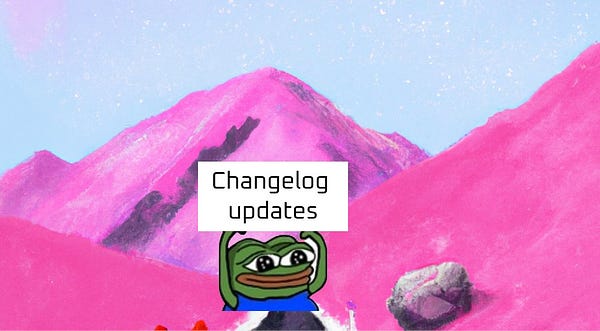
Community updates
Taiko has released the first edition of its new ZK-Roller-Coaster newsletter. The bi-weekly newsletter is going to cover all things ZK. Check it out:

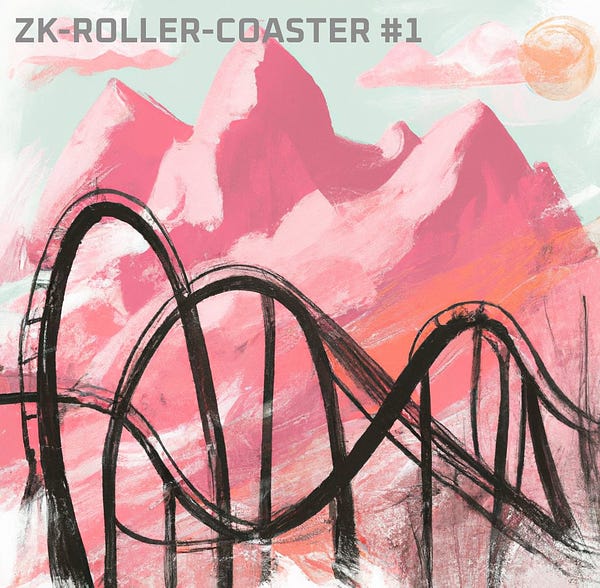
Have you tried building with Taiko yet, anon? Mikko has. Be like Mikko and build something cool today:


Ecosystem updates
Account Abstraction (ERC-4337) is coming to Taiko!
Soul Wallet has announced that it’s going to integrate with Taiko soon:




What does this mean? It means that Taiko users will soon be able to experience all of this:
Learn more about what social recovery wallets are and how they work from Vitalik’s recent Reddit post and an older blog post.
Interesting tweets
Taiko’s researcher and writer Lisa shared her thoughts on her first month at Taiko:

Jon’s tour de force of a blog on decentralizing provers, proposers, etc:


Arbitrum has launched its token ARB:


Not exactly rollup-specific but still an interesting way of looking at governance (or lack thereof):

Tell ‘em, PSE!
Meme of the week
Another banger of a meme from CrazyFarmer:
I’m starting to worry the Taiko Meme Department is getting too centralized!
But man, screw it. There’s no harm in introducing a little bit more centralization (there is), so here’s a meme by yours truly:
Feature. Convo with Dave about decentralized provers
For this week’s feature, I spoke to Taiko’s developer experience guru Dave about an emerging concept in the L2 world: Decentralized provers.
Dave and I mainly talked about how provers work, how to decentralize them, how to build a prover incentive system, and what prover hardware will win out in the long term.
Hope you like it!
1. Proposing, proving, generating validity proofs... These all are somewhat new concepts that only a handful are aware of. Could you describe what the proving process in validity rollups is and how it works under the hood?
Proving what happened off-chain is important for withdrawing state out of the rollup (such as user balances). A ZK-EVM at its core is really just supporting the EVM functionality as we know it. Sometimes, and as is the case with Taiko, this isn’t just supporting high-level solidity, but literally running the bytecode through an actual EVM, by re-using an execution client like Geth.
After running the bytecode, an execution trace is generated which serves as a witness to generate a proof that everything was done correctly and followed all the rules. The ZK-EVM circuits are what create this proof, and it’s an aggregation of multiple sub-circuits (choosing different sub-circuits for parts of the proof is more performant than a single circuit for the whole EVM execution proof). So when another chain wants to check the state of a rollup (for bridging out), they need a verifier key, which is an artifact of the ZK-EVM circuits. This verifier key is used to quickly verify the SNARK/validity proof.
2. As far as I know, there’s no other validity rollup except for Taiko that plans to go live with a decentralized set of proposers and provers. I know you’ve mentioned that prover economics, rewards, tokenomics, and other stuff are still being worked on but could you give a quick overview of how Taiko currently thinks of prover decentralization?
At Taiko, we have a basic value that guides the way we think about prover decentralization but also our entire protocol. That basic value is security. We prioritize this over everything else.
When it comes to tokenomics, we think a lot about it. The connection between tokenomics and security might seem vague at first. But in a decentralized system, the liveliness of the system depends on the incentives structure. If there wasn't an incentive to run an Ethereum validator, no one would run a node. Similarly with provers, if they don’t get any rewards, no blocks will be proven. And if there’s no one to prove blocks, then a chain of unproven blocks will grow. To be clear, this only really affects withdrawing out of the rollup, but it’s still a security concern if blocks never end up getting proven. But if there are the right incentives in place, then there’s enough computing in the world to eventually catch up and prove even a long list of blocks.
We also think about performance, although secondary to security. For example, one challenge we work on is solving the issue of reducing wasted work that can occur in a parallelized prover network. How do you handle the case of multiple provers competing for the same block and how can we distribute that work better? We have a good solution for that where essentially a prover can put up a stake on a block and have a window of time to prove it.
3. Decentralizing the prover naturally means opening a whole new economy, perhaps similar to that of mining. Paradigm’s Georgios Konstantopoulos has said that the ZK prover market could one day be as big as the PoW mining market. Would you agree with this? How do you see the prover economy evolving over time?
I totally see this happening. ZK is such an important and popular thing being worked on right now. And thankfully the community also seems very interested in the end state of decentralized proving. The barrier to entry is currently high but it’s not going to be so high that it excludes specific people.
4. For a prover to be chosen to generate a proof, it has to be fast, and to be fast, it has to run on powerful enough hardware. Konstantopoulos has said that he believes that it’s Field Programmable Gate Arrays (FPGAs) and not GPUs or ASICs (Application Specific Integrated Circuits) that will be the dominant piece of hardware used for ZKP generation. I know it’s still early but has Taiko thought about ZK hardware yet? If so, what are your views on what hardware would work best to generate ZKPs?
At our current stage, we don’t optimize for specific hardware. However, one thing to keep in mind is Taiko’s core tenet of inclusivity. There are different hardware that could perhaps be the best or most optimal for generating proof, maybe that is FPGAs, but we definitely don’t want to optimize only for a particular group of hardware which could close out other participants from entering the space. We want to enable a low barrier to entry into being a prover if we can, to uphold inclusivity and promote decentralization.
I think we’ll have diversity in prover hardware as we did with the PoW mining era, where a lot of the innovation comes from the actual provers working for the network. In PoW times, people would find out which hardware works best, which is most efficient, etc. There will be a lot of experimentation with proving hardware coming from the community.
5. There’s also the eternal question of sustainability. If most activity migrates from L1 to L2 and the prover economy becomes as massive as the miner economy, do you think CO2 emissions and energy consumption from proof generation would eventually become a problem, as it did with Ethereum PoW?
I don’t see these two situations as directly comparable. With PoW, you had to repeat the same work over and over again, it’s intentionally redundant. With proving, all of the work you do is valuable work, but there is no explicit intent for redundancy. So it’s not “wasteful work.” Energy consumption will also be decreased over time with better hardware and protocol optimizations.
Dave, thanks for the convo!
Taiko Haiku
Prover
Crafting proofs with care,
A prover’s meticulous task.
Truth verified, sealed.
(Generated by ChatGPT because umede was really lazy this fine Tuesday evening.)
Useful links
Thanks for reading the eighth installment of Taiko Tuesday! Special thanks to d1onys1us and odesium for their feedback and general support for the project.
If you liked the newsletter, please share it on Twitter and Lens. If you don’t want to miss future installments, make sure you hit that Subscribe button and follow me on Twitter.
Got any feedback or would like to collaborate? Send me a message on Twitter!
Note: This newsletter is for educational purposes only and in no way constitutes financial, investment, or any other type of advice. Always do your own research before making financial decisions.




